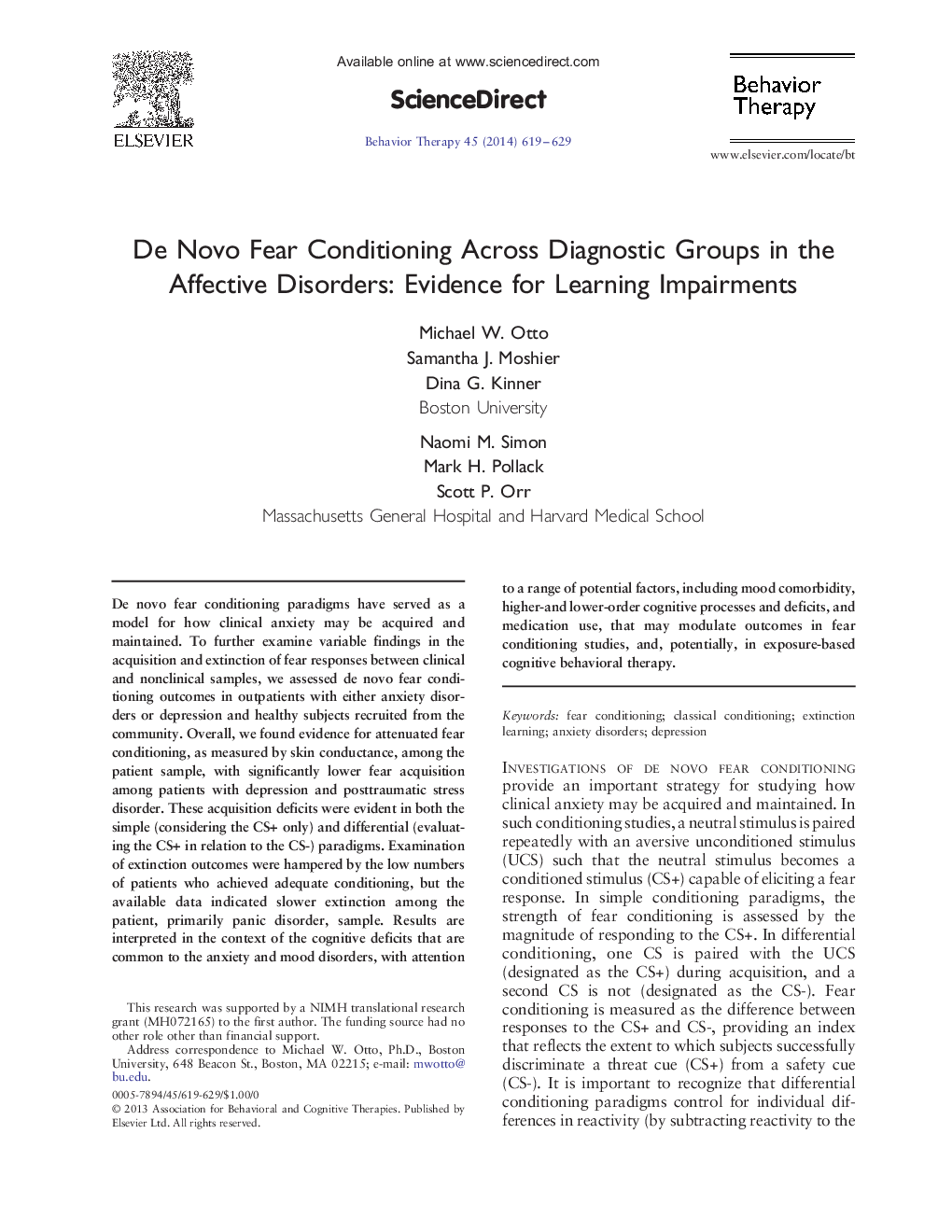| کد مقاله | کد نشریه | سال انتشار | مقاله انگلیسی | نسخه تمام متن |
|---|---|---|---|---|
| 901460 | 915869 | 2014 | 11 صفحه PDF | دانلود رایگان |
• We assess fear conditioning in controls and patients with depression, PTSD, or panic
• Fear conditioning was attenuated in those with PTSD or depression
• Effect sizes suggest slower extinction among patients, particularly those with panic
• We discuss results in context of cognitive deficits common to anxiety and mood disorders
De novo fear conditioning paradigms have served as a model for how clinical anxiety may be acquired and maintained. To further examine variable findings in the acquisition and extinction of fear responses between clinical and nonclinical samples, we assessed de novo fear conditioning outcomes in outpatients with either anxiety disorders or depression and healthy subjects recruited from the community. Overall, we found evidence for attenuated fear conditioning, as measured by skin conductance, among the patient sample, with significantly lower fear acquisition among patients with depression and posttraumatic stress disorder. These acquisition deficits were evident in both the simple (considering the CS+ only) and differential (evaluating the CS+ in relation to the CS-) paradigms. Examination of extinction outcomes were hampered by the low numbers of patients who achieved adequate conditioning, but the available data indicated slower extinction among the patient, primarily panic disorder, sample. Results are interpreted in the context of the cognitive deficits that are common to the anxiety and mood disorders, with attention to a range of potential factors, including mood comorbidity, higher-and lower-order cognitive processes and deficits, and medication use, that may modulate outcomes in fear conditioning studies, and, potentially, in exposure-based cognitive behavioral therapy.
Journal: Behavior Therapy - Volume 45, Issue 5, September 2014, Pages 619–629
